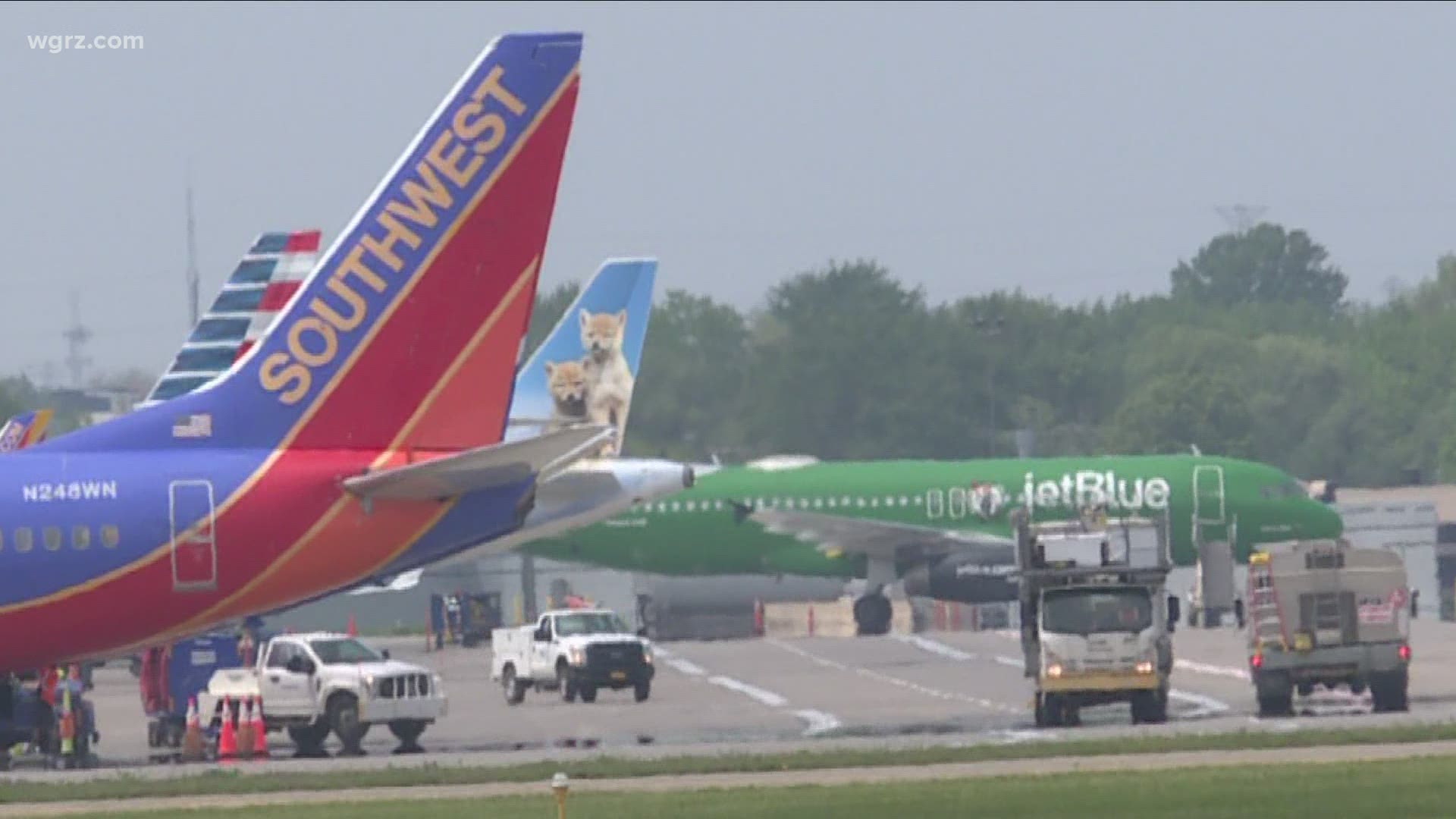BUFFALO, N.Y. — A new rule from the Federal Aviation Administration will make it easy for airlines to share information regarding their pilots with each other.
It's the latest step to improve air safety as a result of the crash of Colgan Air Flight 3407 in Clarence Center 12 years ago.
The Pilot Records Database will be maintained by the F.A.A., and will require the airlines to report their pilots' employment history, training and qualifications.
The information can now be shared between air carriers, which will also be required to review records in the database before hiring pilots.
The database will include the following information:
- FAA pilot certificate information, such as certificates and ratings
- FAA summaries of unsatisfactory pilot applications for new certificates or ratings
- FAA records of accidents, incidents, and enforcement actions
- Records from employers on pilot training, qualification, and proficiency
- Pilot drug and alcohol records
- Employers’ final disciplinary action records
- Pilot records concerning separation of employment
- Verification of pilot motor vehicle driving record.
Flight 3407 Families Herald Latest Step for Air Safety
This measure was part of the push made by the families of the 49 passengers and crew who died, along with another person on the ground, when the crash occurred in February of 2009.
"I've said this before that in New York State, if you want to drive a school bus, they check their records all the way to when you got your driver's license," said John Kausner, who along with his wife Marilyn, lost their 24 year old daughter in the crash later blamed on pilot error.
"He was not qualified to fly that plane... he had failed five check rides prior to that and the airline didn't know it," John Kausner said. "And they testified at the NTSB hearing that had they known it, they wouldn't have hired him."
But while it's taken 12 years to get to this point airlines will have more than three years more to fully comply with the new rules.
"Welcome to the federal government," John Kausner said. "Yes, they have to come into compliance in 36 months. I think they have all the data collected, so why it can't be next month is beyond me but that's where we're at."
Flight 3407 families are heralding the news, however, as an important and final piece of a puzzle toward safer skies, which follows their previously successful efforts to lobby for increased and more rigorous pilot training and for mandatory rest periods between flights for air crews.
"It's a proud moment for us and we believe that the greatest legacy to our loved ones are all the lives that have been saved because they inspired us and we feel like we finished the race," Marilyn Kausner said.
Added her husband, "A lot of people don't realize that we haven't had an airline crash in the United States in 12 years. In the 20 years preceding that there was more than one crash per year on average in the United States. That was the record before the 3407 crash, and in the 12 years since there have been zero. And that's not just due to our efforts, but also due to the efforts of our congressional delegation and media which has kept these issues in the public eye."

